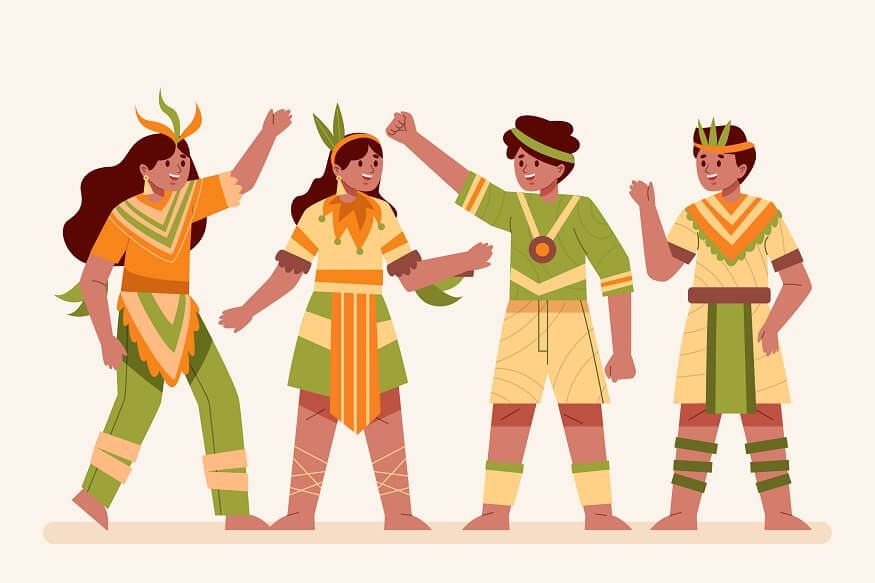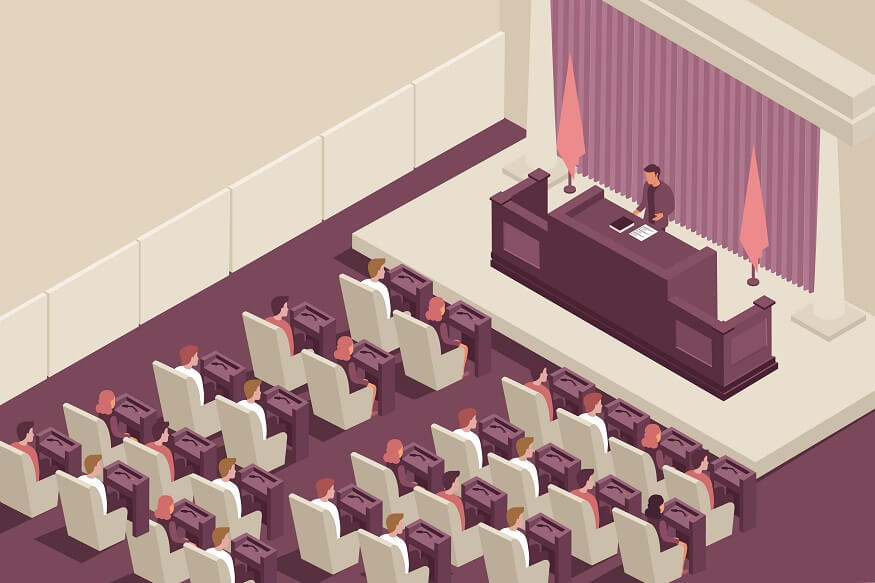Indigenous and tribal peoples are separate cultural groups with key connections to specific places, typically dating back to the arrival of colonial forces or dominant nations. These people have different cultures, and societies that are often related to their environment.
Also Read: Why is it Important to Study Ancient Civilisation – Benefits
Indigenous peoples:
Indigenous peoples, usually referred to as native or aboriginal peoples, are the indigenous occupants of a specific region or territory. They have a long history, predating the arrival of other groups such as colonial immigrants or warriors. Indigenous peoples usually have a deep emotional and cultural connection to the land they exist, considering it as more than simply a physical location but as an essential component of their identity and heritage.
Key Characteristics:
Cultural Diversity: Indigenous peoples encompass a vast array of cultures, languages, and traditions that have evolved over centuries.
Ancestral Lands: They have longstanding ties to specific territories, often practising sustainable land use and resource management.
Collective Identity: Indigenous identity is often grounded in collective history, shared experiences, and a sense of belonging to a community.
Traditional Knowledge: Indigenous peoples possess unique knowledge about their environments, ecology, medicine, and more, passed down through generations.
Oral Traditions: Storytelling, oral history, music, and art play pivotal roles in preserving and transmitting their cultural heritage.
Spiritual Connection: Many indigenous cultures maintain deep spiritual connections to nature, often expressed through rituals and ceremonies.
Lifecycle:
Ancestral Heritage: Indigenous people begin life immersed in ancestral traditions, learning language, cultural practices, and values from elders.
Land and Resource Dependence: They rely on their land for sustenance, shelter, and cultural practices, forming the basis of their lifeways.
Cultural Expression: Indigenous youth engage in cultural activities, developing a strong sense of identity and belonging within their communities.
Advocacy and Rights: Many indigenous peoples advocate for land rights, self-determination, and cultural preservation, often engaging in global platforms.
Cultural Revival: Efforts to revitalise languages, traditions, and knowledge systems help younger generations connect with their heritage.
Sustainable Development: Some indigenous communities embrace sustainable practices, blending traditional ecological knowledge with modern insights.
Global Contributions: Indigenous perspectives enrich global discussions on cultural diversity, environmental stewardship, and social justice.
Legacy and Passing Down Knowledge: Elders play a crucial role in passing on traditions, wisdom, and cultural values to younger generations.
Self-Determination: A desire for self-governance and control over their lands and resources remains a significant aspiration.
Tribal People:
Tribal people are different people; they live in very isolated or remote areas, often adhering to their traditional ways of life and cultural practices. The term “tribe” is sometimes used to refer to mini-social groups within a larger indigenous community, although its use is controversial due to its historical association with colonial classifications.
Key Characteristics:
Distinct Identity: Tribe people have unique cultural identities, often marked by their languages, customs, art, and rituals that distinguish them from mainstream societies.
Close Ties to Land: Their lives are intimately connected to their ancestral lands, which provide resources for sustenance, livelihoods, and cultural practices.
Communal Living: Tribe people often live in close-knit communities where cooperation, shared responsibilities, and mutual support are essential for survival.
Oral Tradition: Much of their history, knowledge, and beliefs are passed down through oral storytelling, maintaining a strong link to their past.
Traditional Ecological Knowledge: Tribe people possess deep knowledge of their local ecosystems, using sustainable practices for hunting, gathering, and farming.
Simple Technology: Their technologies are adapted to their environment, relying on traditional tools and techniques for daily tasks.
Cultural Diversity: Worldwide, tribal peoples exhibit a remarkable diversity of languages, cultures, and practices.
Lifecycle:
Ancestral Heritage: Tribal life begins with a deep connection to ancestral lands, where traditions, stories, and customs are passed down through generations.
Childhood and Learning: Children learn about their culture, traditions, and survival skills from their elders and through direct experiences in nature.
Initiation and Rites of Passage: Many tribes have rituals that mark the transition from childhood to adulthood, reinforcing cultural values and roles.
Resource Dependence: Adolescents and adults engage in activities like hunting, fishing, gathering, and agriculture, sustaining themselves through traditional practices.
Community and Cooperation: Life revolves around communal living, where members share responsibilities, resources, and decision-making.
Cultural Expression: Tribes express their identity through art, music, dance, and ceremonies, often linked to spiritual beliefs and natural cycles.
Contact with Outsiders: Encounters with outsiders, whether through trade, colonisation, or tourism, influence their way of life and can bring both positive and negative impacts.
Elders and Wisdom: Elders hold significant roles as sources of wisdom, knowledge, and cultural guidance within the community.
Cultural Revival: Efforts to revive and preserve tribal languages, traditions, and customs are becoming increasingly important in the face of globalisation.
Advocacy and Rights: Many tribal communities advocate for their rights to land, self-governance, and cultural preservation, often in collaboration with international organisations.
Legacy and Continuity: The life cycle continues as younger generations inherit and carry forward the traditions, knowledge, and identity of their tribe.
Also Read: 10 interesting ways to learn history
Challenges Faced by Indigеnous and Tribal People:
Despite thеіr unique cultures and contributions to humanity, indigenous and tribal communities face numerous challenges:
Land Displacеmеnt and Loss: Historical colonisation and contеmporary land grabs have rеsultеd in the displacement of thеsе communities from their ancestral lands, causing loss of identity, culture, and traditional ways of life.
Marginalisation and Discrimination: Indigenous and tribal peoples often face discrimination, marginalisation, and еxclusion from political, economic, and social opportunities in their countries.
Environmеntal Dеgradation: Mоdеrn dеvеlopmеnt projects, rеsourcе еxtraction, and deforestation threaten their lands, undеrmining thеir sustainablе practicеs and way of life.
Hеalth Disparitiеs: Limitеd accеss to hеalthcarе, clеan watеr, and sanitation increases thе vulnerability of communities to diseases.
Cultural Erosion: Globalisation, urbanisation, and cultural assimilation can еrodе traditional knowledge, languagеs, and practices.
Lack of Representation: Many indigenous and tribal communities lack adequate representation in decision-making processes that affect their lives and lands.
Loss of Autonomy: In many cases, their political autonomy has been compromised by
centralised governance systеms that don’t rеspеct their self-govеrnancе models.
Conclusion:
The lifecycle of indigenous and tribal peoples is marked by rеsiliеncе, adaptation, and an еnduring connеction to their ancеstral lands. Their cultural significance lies in thе prеsеrvation of unique languages, traditions, and knowlеdgе systеms that contribute to thе rich tapеstry of human hеritagе. At EuroSchool, we believe that recognizing and respecting their contributions is essential for promoting a more inclusivе and harmonious world. Visit EuroSchool to learn more.










